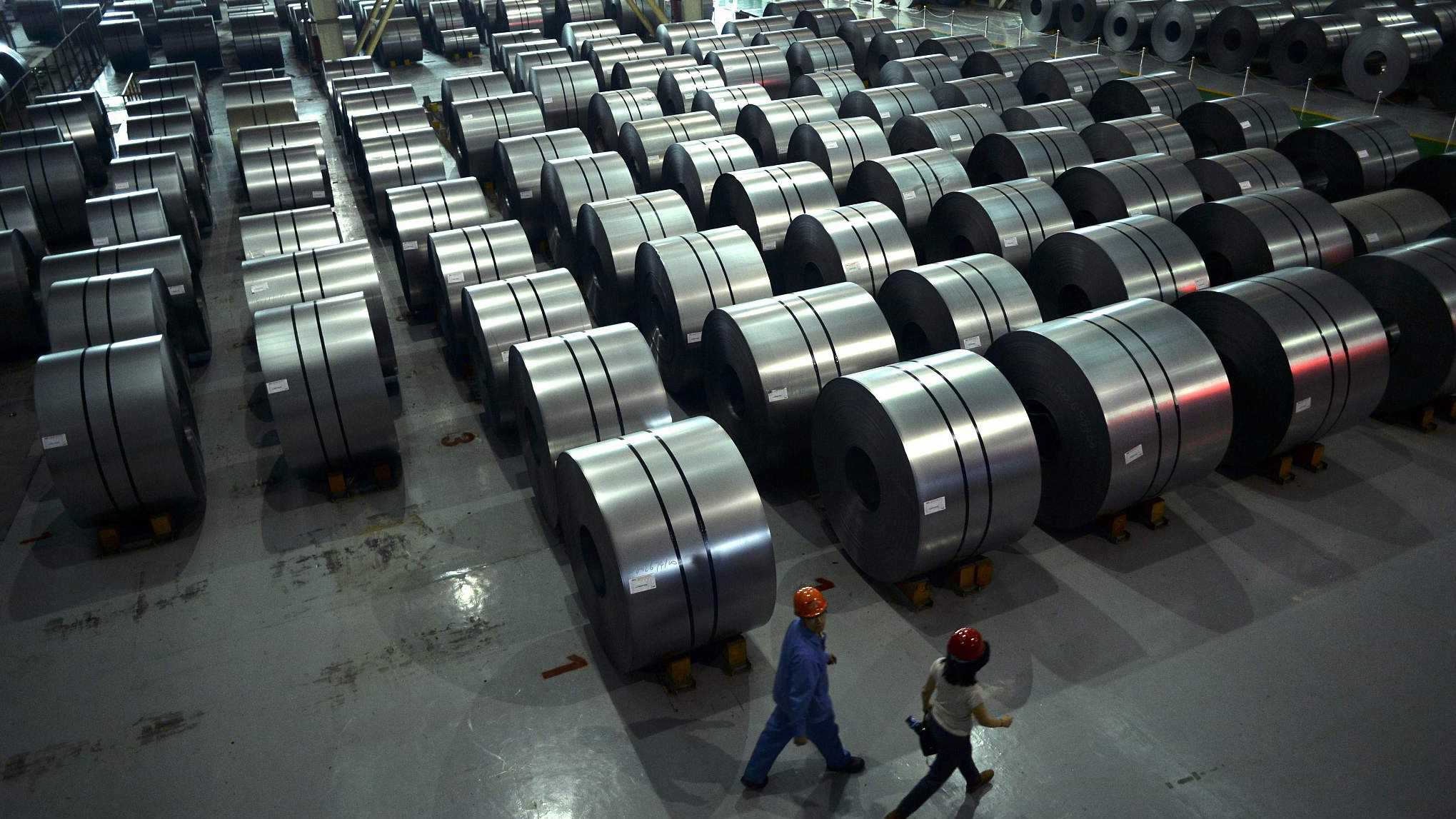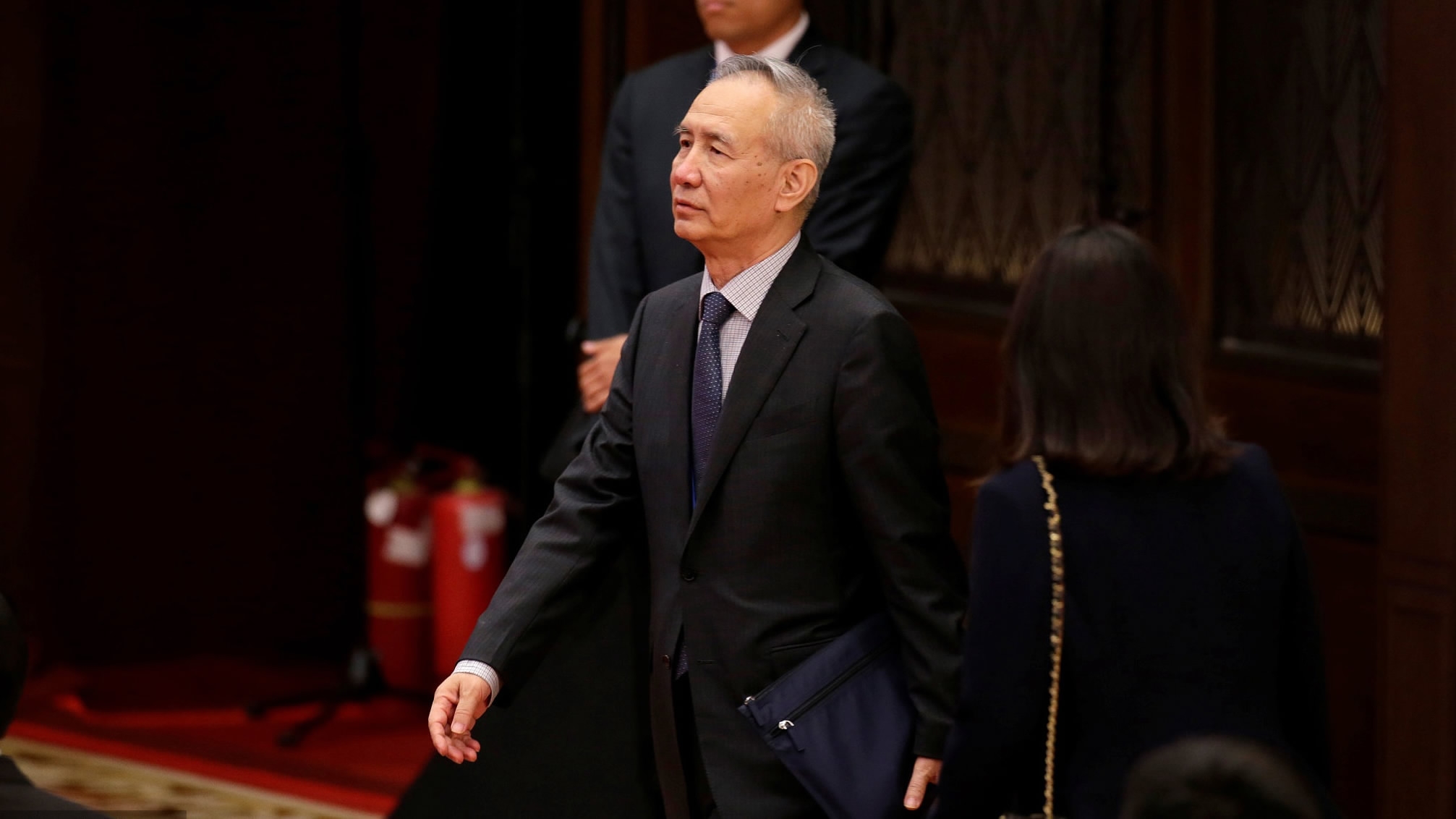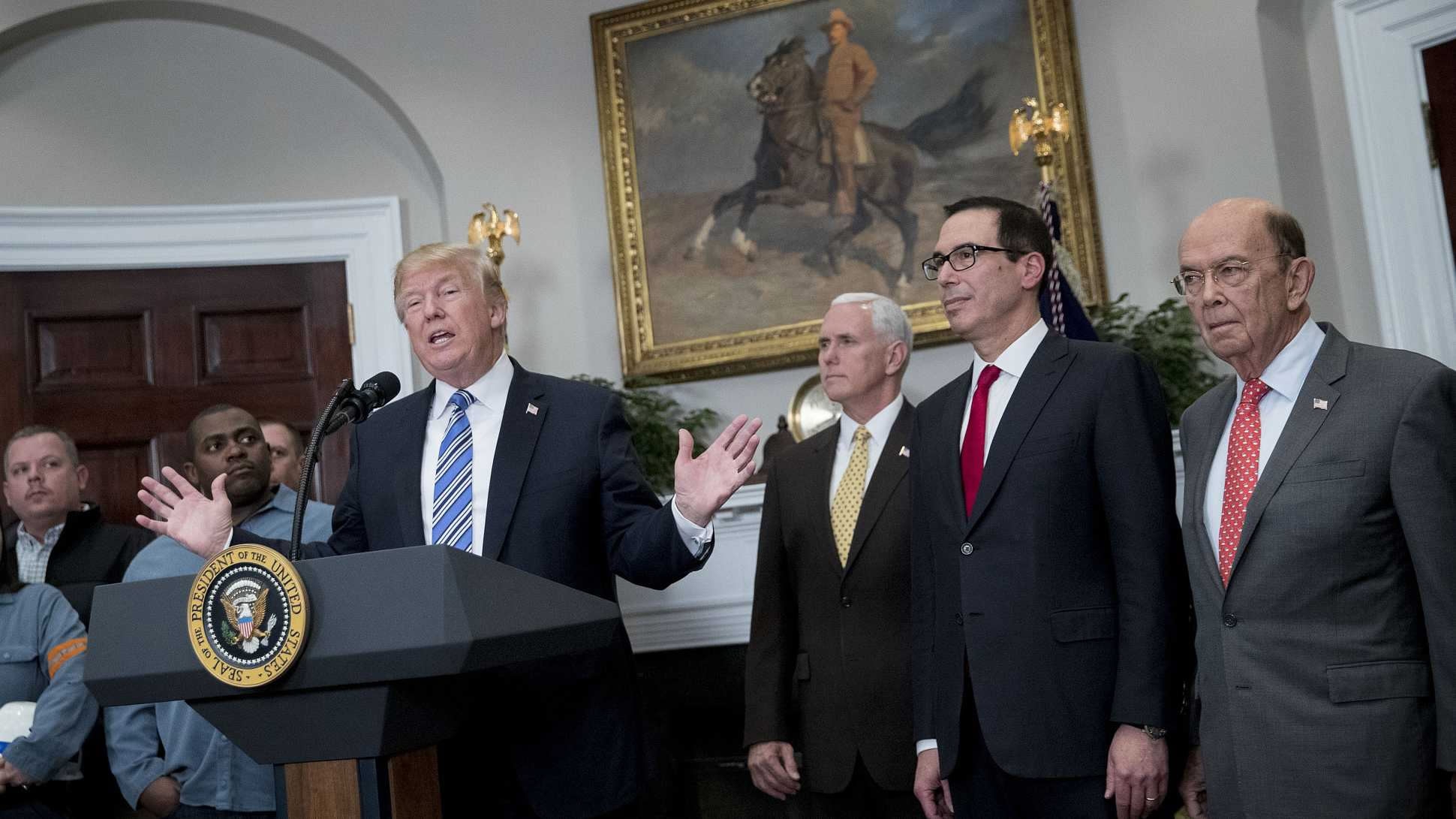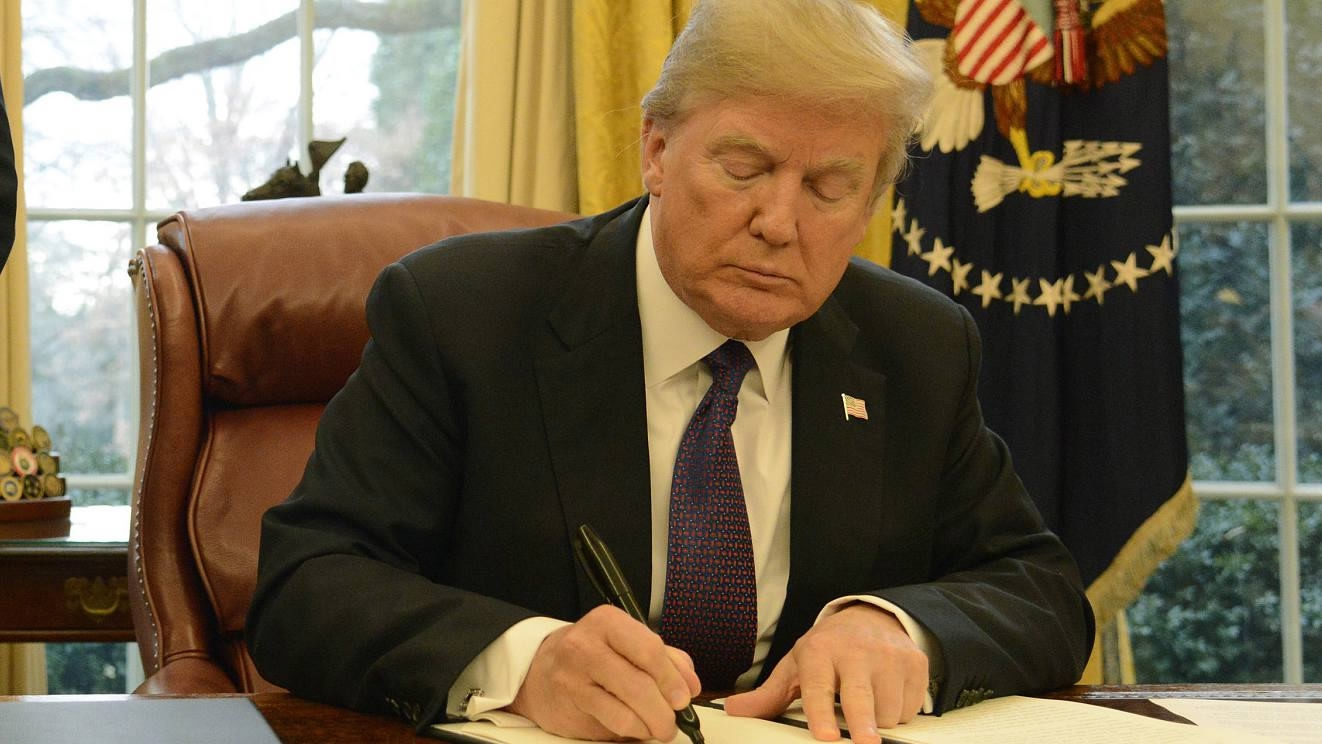The world is in danger of sliding down into a Smoot-Hawley era. Smoot-Hawley was, of course, a notorious US act that ushered in a period of protectionism, raising tariffs on over 20,000 imported goods.
US President Donald Trump’s imposition of tariffs on metal imports, 25 percent on steel and 10 percent on aluminum, may go down in history in exactly the same way.
In this frenzy, believe it or not, China fares much better than the way it is often portrayed in the Western mainstream media. Although the previous anti-dumping measure against aluminum foil is directed at China, the steel and aluminum tariffs, which were built on the results of the Section 232 investigations concerning national security, actually doesn’t affect China much, as China’s share of the total world steel exports to the US stands only at 2.2 percent.

This picture taken on April 21, 2016, shows a worker (L) walking in a warehouse in the Han-steel plant in Handan, in China's northern Hebei province on April 21, 2016. /VCG Photo
This picture taken on April 21, 2016, shows a worker (L) walking in a warehouse in the Han-steel plant in Handan, in China's northern Hebei province on April 21, 2016. /VCG Photo
The Sino-US relationship still appears to be on solid ground, especially due to the close rapport between President Xi and Trump, which has developed since their first Mar-a-Lago meeting last year.
Even though America’s trade deficit with China is now at an all-time high, totaling over about 300 billion US dollars, and besides the fact that Trump is now surrounded by all those protectionist China hawks since the departure of his economic advisor Gary Cohn, Trump still seems to believe that there is a way out of this structural trade impasse. And China’s top economic advisor Liu He’s five-day stay in Washington this week appears to be a productive last-ditch effort to pull Trump away from his posse of China hawks.

Liu He, vice chairman of the National Development and Reform Commission (NDRC), arrives for a news conference by China's president Xi Jinping at the end of the Belt and Road Forum in Beijing, China May 15, 2017. Picture taken May 15, 2017. /VCG Photo
Liu He, vice chairman of the National Development and Reform Commission (NDRC), arrives for a news conference by China's president Xi Jinping at the end of the Belt and Road Forum in Beijing, China May 15, 2017. Picture taken May 15, 2017. /VCG Photo
On Thursday, March 8, Trump put out the following tweet:
“China has been asked to develop a plan for the year of a One Billion Dollar reduction in their massive trade deficit with the United States. Our relationship with China has been a very good one, and we look forward to seeing what ideas they come back with. We must act soon.”
-
Well, there are several messages based on my reading of this tweet, which has clearly not been properly vetted by his chief of staff, John Kelly. Several typos are obvious. Deficit should be surplus, and that 1-billion-US-dollar figure, I think, cannot be true. Either it is a typo or he remembered it wrong from wherever he got his information from.
First, the tweet seems to indicate that some kind of agreement was reached between Liu He and his negotiating counterpart. And that agreement appears to hinge upon China’s commitment to achieve concrete results in reducing the trade surplus. By how much? I don’t think it could possibly be 1 billion US dollars, as it is such a drop in the bucket that Hainan Airlines can single-handedly do it with an order of just 10 Boeing 787 Dreamliners. But the real amount, we do not know, nor about the composition of that amount. Trump said that Beijing is going to come back with a plan.
Second, by my reading of the tweet, this reduction in the trade imbalance needs to be done very quickly, as there is mounting pressure on Trump from his posse of China hawk advisors, Wilbur Ross, Peter Navarro, Robert Lighthizer, and etc. Trump’s tweet says, “We must act soon.”

U.S. President Donald Trump speaks as Wilbur Ross, U.S. commerce secretary, from right, Steven Mnuchin, U.S. Treasury secretary, and U.S. Vice President Mike Pence listen during a ceremony before Trump signs proclamations on adjusting imports of steel and aluminum into the United States in the Roosevelt Room of the White House in Washington, DC, US, on Thursday, March 8, 2018./VCG Photo
U.S. President Donald Trump speaks as Wilbur Ross, U.S. commerce secretary, from right, Steven Mnuchin, U.S. Treasury secretary, and U.S. Vice President Mike Pence listen during a ceremony before Trump signs proclamations on adjusting imports of steel and aluminum into the United States in the Roosevelt Room of the White House in Washington, DC, US, on Thursday, March 8, 2018./VCG Photo
Third, Trump still believes that the US relationship with China has been a very good one. This is very important, and regrettably much of the Western mainstream media have sanitized this sentence. It is actually the second time he came out to say so recently. During Australian Prime Minister Malcolm Turnbull’s visit to the US two weeks ago, he said the following in their joint press conference, which again was not widely reported in the Western mainstream media:
“But we’ve developed a great relationship with China, closer probably than we’ve ever had, and my personal relationship, as Malcolm can tell you, with President Xi is, I think, quite extraordinary.”
-
When further pressed by a reporter asking about Defense Secretary Jim Mattis’s characterization of China as “a revisionist country,” a reference which is also included in the recently released National Security Strategy and National Defense Strategy, Trump said something even more interesting:
“As far as General Mattis is concerned, he has that view, and a lot of people have that view. China’s tough; they’re getting stronger…With that being said, I think we can have a further great trading relationship with China. Hopefully that’s going to work out. And hopefully the relationship I have with President Xi will make that happen.”
-
I have to admit that I have done my fair share of Trump-bashing over the years, but it appears to me that, contrary to a lot of morons around him, he still believes that a stable and prosperous Sino-US relationship is fundamentally in the interest of the United States. If the two countries could only jointly solve the trade imbalance issue, there is still sun shining ahead over the Pacific.
(Dr. John Gong is a professor at the University of International Business and Economics. The article reflects the author's opinion, and not necessarily the views of CGTN.)





